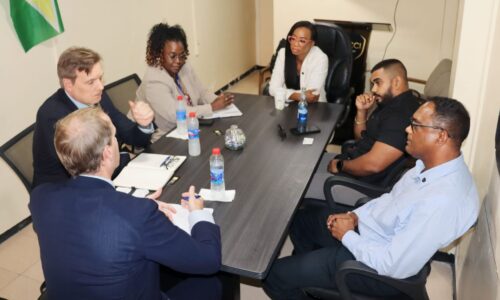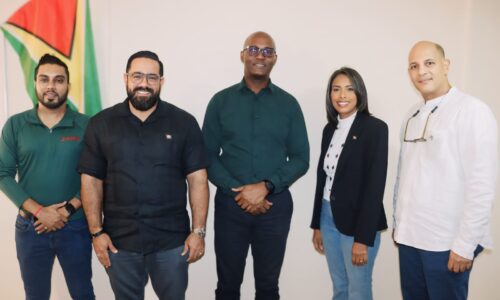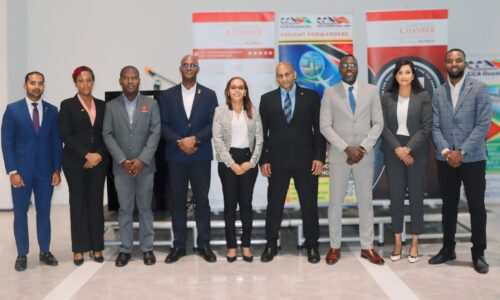Stakeholders’ calls being ignored… Draft Local Content Policy plan is essentially for foreigners
By Kiana Wilburg
Absent from the third, and supposedly final draft of Guyana’s Local Content Policy, are three key things which stakeholders have long called for.
Firstly, the draft policy (a copy of which Kaieteur News has perused) makes no recommendation for local companies to enjoy the same tax breaks that are granted to the subcontractors and affiliated companies of the oil majors operating offshore Guyana.
Secondly, the draft policy makes no demand for oil companies and their subcontractors to increase their use of local labour and services overtime.
Thirdly, foreign companies will not be mandated to partner with local firms, despite a report from the United Nations Development Programme (UNDP) calling for same. In fact, the draft policy states, “…it is the policy of the Government of Guyana to not mandate local-foreign joint ventures as a requirement for market access in the upstream petroleum sector, but instead to encourage such alliances…”
With respect to tax breaks, Kaieteur News would have reported on several occasions the oil companies, their affiliated firms, and all their subcontractors enjoy a range of tax exemptions. They are not required to pay Value Added Tax (VAT) or import duties on equipment and supplies.
In fact, the only tax that these foreign subcontractors are required to pay is Excise Tax on fuel imports at a rate of 10 percent; meanwhile, locals have to pay 50 percent.
Taking this into account, Local Content Expert, Anthony Paul has said that such exemptions for foreign subcontractors can only be viewed as discriminatory to locals and should be addressed, whether by law or through the review of contracts.
Paul emphatically outlined same in a report that he wrote on the request of the United Nations Development Programme (UNDP). That international organisation had commissioned this report for the Government and it was handed over in 2016. In that document, Paul stressed that such exemptions undermine Guyana’s local content efforts.
Further to this, the Trinidadian said in the same report that any Local Content Policy Guyana pursues should ensure all international oil subcontractors are made to have a local partner. In fact, the Chatham House Advisor said that it is in Guyana’s best interest to have a policy, which demands that such foreign companies collaborate with locals to get maximum local content impact.
THREE DRAFTS
The first two drafts of Guyana’s Local Content Policy were done by Paul, but in February, last, Director General of the Ministry of the Presidency, Joseph Harmon, had announced that Oil Consultant, Dr. Michael Warner, was hired to complete the policy.
The cost of that contract was $22M. Kaieteur News had confirmed with former Business Minister, Dominic Gaskin, that this contract was never advertised.
Kaieteur News had also raised several questions about Dr. Warner’s connection to ExxonMobil, the firm that brought him to Guyana in the first place to train local businesses trying to access the supply chain. Dr. Warner was actually a fixture at Exxon’s Centre for Local Business Development on South Road for this matter.
But instead of facing Kaieteur News, the Ministry of the Presidency had released a video recording of the Head of the Energy Department, Dr. Mark Bynoe speaking selectively on issues related to the contract granted to Warner.
Dr. Bynoe had said that there are several procurement processes, which can be used to expedite the award of a contract. He said that the one used for the $22M Local Content Policy Contract is called a limited competitive selection of individual consultants.
He said this is consistent with the World Bank’s regulations of July 2016, which was revised in November 2017 and further in August 2018.
Further, the Energy Department Head said that this process allowed for the use of a three CV process and the subsequent assessment of the consultants based on their expertise and qualifications as well as their ability to deliver.
After this assessment, Dr. Bynoe said an evaluation report would have been completed and sent to the World Bank for its no-objection. Based on that, Dr. Warner who has no track record of independently producing a local content policy for a country was selected as the “best candidate” to execute the consultancy.
In spite of the answers provided, Dr. Bynoe failed to say who were the other two individuals given the invite to submit proposals for the tender, who recommended the individuals, what criteria were used to determine their ability to deliver, what level of due diligence was conducted on the invited consultants beyond the mere scrutiny of their work resume, and why three, and not all individuals familiar with providing such services to Guyana, were invited to submit proposals.






